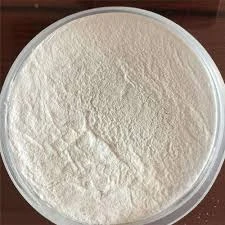
Dec . 05, 2024 00:47 Back to list
mortar bonding additive
Understanding Mortar Bonding Additives Enhancing Performance in Construction
Mortar is a fundamental element in construction, acting as the glue that binds bricks, stones, and other masonry elements together. However, the performance of mortar can be significantly influenced by various factors, including the quality of the bonding additives used. Mortar bonding additives are specialized compounds introduced to enhance the adhesion, workability, and durability of mortar mixtures. This article explores the importance of mortar bonding additives, their benefits, and their applications in the construction industry.
Importance of Mortar Bonding Additives
As construction techniques evolve, the demand for superior bonding solutions has increased. Mortar bonding additives play a crucial role in improving the performance characteristics of mortar. These additives can modify the physical and chemical properties of the mortar, resulting in a stronger, more durable product. They help to ensure that mortar maintains its integrity under various environmental conditions, making it a reliable choice for both residential and commercial projects.
Types of Mortar Bonding Additives
There are several types of mortar bonding additives available, each serving unique functions
1. Polymer-based Additives These are among the most commonly used bonding agents. Polymer-modified mortars exhibit enhanced adhesion and flexibility, making them ideal for applications where movement is expected, such as in tile setting or facade work.
2. Adhesion Promoters These additives improve the bond between the mortar and the substrate. They are particularly useful when working with challenging materials such as glass, ceramics, or smooth concrete surfaces that typically resist good adhesion.
3. Anti-shrinkage Additives Shrinkage can lead to cracks and compromise the integrity of masonry structures. Anti-shrinkage additives help mitigate this issue, ensuring a more stable and long-lasting bond.
4. Water-retaining Agents These additives improve the workability of the mortar by retaining moisture, allowing for better mixing and application. They are particularly beneficial in hot or windy conditions where moisture loss can occur rapidly.
5. Coloring Agents In addition to performance enhancers, coloring agents can be added to achieve desired aesthetics in finished masonry work. This not only improves visual appeal but also allows for creative expression in construction designs.
Benefits of Using Mortar Bonding Additives
The incorporation of mortar bonding additives brings several noteworthy benefits
mortar bonding additive

- Improved Adhesion Enhanced bonding properties ensure that mortar adheres effectively to various substrates, minimizing the risk of delamination and structural failure
.- Increased Flexibility Mortar with bonding additives can better withstand thermal expansion and contraction, making it suitable for areas subject to temperature fluctuations.
- Enhanced Durability Additives provide resistance to environmental stressors such as moisture, UV light, and chemical exposure, leading to longer-lasting installations.
- Workability Mortar with proper bonding additives is easier to mix, spread, and shape, resulting in a more efficient construction process.
- Customization With the option to include coloring agents and other modifications, contractors can achieve specific aesthetic goals without sacrificing performance.
Applications in Construction
Mortar bonding additives are used in a wide variety of construction projects
- Residential Construction They are commonly used in bricklaying, stucco application, and tile installation, improving the overall quality and longevity of the structure.
- Commercial Projects High-performance mortars are essential for large-scale commercial applications, ensuring compliance with building codes and enhancing safety.
- Renovation and Repair Additives are also beneficial in repair work, where adhering new materials to old surfaces can be challenging.
Conclusion
In summary, mortar bonding additives are indispensable tools in modern construction. By improving adhesion, flexibility, and durability, these additives enhance the performance of mortar, allowing for safer and more aesthetically pleasing structures. As the industry continues to advance, the importance of high-quality bonding solutions will only grow, underscoring the need for builders and contractors to select appropriate additives for their projects. Investing in these materials can significantly influence the overall success and longevity of construction endeavors.
-
Versatile Hpmc Uses in Different Industries
NewsJun.19,2025
-
Redispersible Powder's Role in Enhancing Durability of Construction Products
NewsJun.19,2025
-
Hydroxyethyl Cellulose Applications Driving Green Industrial Processes
NewsJun.19,2025
-
Exploring Different Redispersible Polymer Powder
NewsJun.19,2025
-
Choosing the Right Mortar Bonding Agent
NewsJun.19,2025
-
Applications and Significance of China Hpmc in Modern Industries
NewsJun.19,2025







